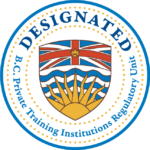COURSE DESCRIPTIONS
PROJECT-BASED COURSES
Directing Documentaries
You will analyze various documentary genres before visualizing your own material. Learn interview styles and techniques that will allow your subject to tell their story in the rawest form. Choose a person, event, or organization that they can document for a short documentary project, prepare a documentary proposal and verbally pitch their film to the class. At the end of this module you will shoot a 10 minute documentary that has potential to be extended into a full-length feature doc.
Long-Form Documentary
Learn what it takes to create a documentary concept in a longer format including the depth and story structure required to capture an audience’s attention for an extended period of time (TV hour to feature length). Students will learn to write for documentaries. They will workshop documentary ideas by learning to build stories out of vision, narrative, and factual information. Students write loglines, interview questions, and make sense of story structure necessary to produce a good long form documentary This process is expressed through a well written treatment. Students eventually focus on a single, attainable idea which takes place within the lower mainland and begin focused research and development culminating in a teaser trailer.
Cinema Verite
Also referred to as “observational cinema” or “truthful cinema,” cinema verite is a direct form of documentary that is usually absent of voice-over narration. It combines elements of improvisation with camera work to depict truth and highlight subjects hiding behind cruel reality. The camera is often a character in this genre and can be referred to by others in the film, who usually dislike being in front of the camera. Robert Flaherty, The Maisel Brothers and Nicholas Broomfield are seminal cinema verite filmmakers. Students will also learn how to decide what is important to put in your film and what can be left out and how to know when a documentary film should end.
You will shoot a subject in a verite style for three hours and cut that footage into a 5-minute short. This footage can later be used as part of a longer project.
Biographical Films
Before students put others on screen, they should turn the camera on themselves and understand what opening up on screen takes. The biographical story project does that, and students will produce a 3-5 minute piece telling a story about an important part of their past.
Each student is required to write, direct, edit and appear in an autobiographical film. Students are encouraged to tell a story about something profound that has changed their life. It is also encouraged to take artistic risks and dare to be unique. The bio can be experimental or simply a video blog augmented with moving imagery. Students are evaluated on storytelling, photography, sound, and editing. The goal of this project is to help students move from individual exercises to a fully formed film.
Documentary Series
In this series-based course, students will learn what it takes to produce commercial documentaries and lifestyle/reality series. They will explore lifestyle or unscripted series in the vein of reality shows that span from Property Brothers to Chef’s Table to Tiger King as well as Docu-Series such as Wild Wild Country and the like. Students will learn how to turn real-life people into engaging characters that audiences can connect with. They
will understand how to anticipate and pick out key moments in history and within real life events to cut into an engaging story. After developing a series bible, students will choose a chapter to create a pitch package and deliver a professional pitch.
Graduation Project
The sole focus of Term 3 is the production of a grad project. Work together with your classmates and spend weeks planning, shooting, and editing your project under the guidance of instructors and industry mentors. This project may be a long-form documentary or a pilot for a doc series. Once completed, your project will round out your portfolio and launch your career with a film or series that is ready for sale, distribution, and broadcast.
SKILL-BUILDING COURSES
Cinematography
This hands-on course will cover the fundamentals of cinematography. Set up and use a camera to create a variety of basic and artistic shots, using framing and other techniques to enhance the story you are trying to tell. You will also be introduced to lighting techniques involving mood, exposure, colour temperature, as well as camera settings that can change the dynamic of a scene. Learn to create lighting scenarios indoors and outdoors with a variety of equipment.
Documentary Aesthetics
The documentary genre was born from factually documenting subjects, mostly for educational, instructional, or historical purposes. While these still hold true to this non-fiction genre, entertainment has also become a key factor, and documentarians have found ways to borrow elements from fictional, cinematic films to make their true-to-life stories captivating for audiences. To this day, the documentary genre is constantly evolving, finding new ways to deliver the facts in engaging, exciting, and creative ways.
Investigative Journalism
In this course, students will learn the fundamentals of video journalism. They will learn to navigate the current landscape within the field of video journalism and will be exposed to the key principles that separate the journalistic process from the documentary genre. The goal of the course is to give students a core understanding of the role of a journalist and what it takes to cover a story. Students will learn the discovery, research, fact checking, and interview processes and how to bring the story together for the camera. The course covers the tact of landing key/sensitive subjects for interviews, finding credible subjects, conducting field research, building trust and relationships, as well as ethical and legal concerns. In the final section of the course, the instructor will simulate a news assignment in which they pull a lead from a news wire and students run through the detailed story development exercise.
Editing as a Storyteller
Documentary stories are made in the edit suite. Dive deep into the creativity of editing by utilizing pacing, rhythm and flow to edit a film fitting for its genre and narrative. Analyze films with unique editing choices and discuss the effects and emotions each cutting style has on the audience. Whether it’s building tension or slowing the pace before a big reveal, your creative choice as an editor greatly impacts how each scene affects the big picture.
Audio
This course will introduce students to sound for film. Clean sound is an important component of every film, and having the technical skills to achieve it is a necessity. Students will gain expertise in choosing the correct microphone, microphone placement, using digital recorders, and capturing clean, usable dialog on location. The second half of this course will focus on giving students an in-depth knowledge of post-production audio and mixing techniques.
Editing
Editing is an invisible art but an integral part of every film and filmmakers must have knowledge of what happens in the edit suite if they want to be successful. This course will give you in-depth, technical knowledge of Adobe editing tools such as Premiere and Audition. Learn the jargon of the trade, how to organize and label your footage, and how each film progresses through the editing process from assembly to locked picture.
Colour
The use of colour in film is a method of storytelling in itself. Tackle colour throughout the image making process from production to post-production. Using Adobe Premiere, we will tackle digital workflows, primary grades, contrast/brightness, chromaticity, hues, secondary curves, lookup tables, and various other dimensions of colour design.
Documentary Producing
Many skill sets are required to be a film and television producer. Students will learn the key responsibilities of a documentary producer: money management, people management and schedule management. Complete real-world grant applications from funders such as Storyhive, BC Creative, CBC, NFB, the BC Arts Council, and more. You will create the necessary finance, schedule, and marketing documents to ensure a successful shoot and build the team to realize your vision.
Career Development
Discover the many opportunities available to documentary filmmakers. See how you can use your portfolio and skillset as stepping stones towards the ideal career you want to develop. Learn how to network, build your brand and make your presence known in the industry. Network with entertainment professionals and industry mentors to build the connections that will last well into your professional career.
GET MORE INFORMATION
By submitting this form you are agreeing to be contacted by InFocus Film School. We will never sell or distribute your information, and you may opt-out of receiving emails from us at any time. Read our Privacy Policy here.




